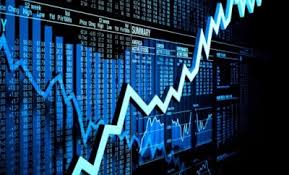We’re often asked which is better for stock trading, fundamental analysis or technical analysis? Traders want to know which style of analysis is more likely to lead to profitable trades.
Fundamental analysis attempts to measure the intrinsic value of a stock. In other words, what is the company actually worth? If you were wanting to buy a used car, in addition to the make and model of the vehicle, you would consider the age of the car, the amount of miles on it, what options it has, how well has it been maintained, etc. Once considering all of these factors and comparing it to similar vehicles on the market, you could come up with an estimated fair price, or intrinsic value.
Fundamental analysis of stocks works in a similar fashion. You look at the assets and liabilities, earnings, expenses, future prospects, etc. Once you’ve done that, you compare the company to others in the same industry. The goal is to find that intrinsic, or real value.
 Technical analysis, on the other hand, doesn’t consider any of this. To a technical analyst, or technician, the intrinsic value of a company is irrelevant. Technicians study statistics generated by market activity such as price and volume. They use charts to study this data and identify trends and patterns. Technical analysis is based upon the assumptions that fear and greed dominate stock market trading, and that history repeats itself.
Technical analysis, on the other hand, doesn’t consider any of this. To a technical analyst, or technician, the intrinsic value of a company is irrelevant. Technicians study statistics generated by market activity such as price and volume. They use charts to study this data and identify trends and patterns. Technical analysis is based upon the assumptions that fear and greed dominate stock market trading, and that history repeats itself.
Fundamental analysis relies on the Efficient Market Hypothesis to drive stock prices. That is the idea that stock prices quickly reflect all relevant information and developments that influence prices occur randomly, and are unknowable in advance. Technicians believe that the Efficient Market Hypothesis is flawed because it assumes that market participants are rational. Technicians are quick to point out that human behavior in the stock market is anything but rational. The other flaw they point to is the notion that all market participants are fully informed. Even in today’s information age, it is obvious that many traders are not fully informed.
The stark contradiction between the two schools of thought is what leads to the question of which is better? If I want to be a successful stock trader, should I rely upon fundamental, or technical analysis? Well, it depends upon your goals and trading philosophy.
Fundamental analysis should be the basis for your trades if you are a long-term buy and hold type of investor. If you plan to invest in a company and hold onto it for years, the short-term ebb and flow of stock prices will be less important to you. Having said that, even if you intend to own a stock for years, it is still a good idea to time your entry into the position while the stock price is at a technical low, rather than a high.
If you are more of a short-term trader than an investor, your ability to perform technical analysis will be the difference between success and failure. The Efficient Market Hypothesis works much better over longer periods of time. However, we know that in the short-term, stock prices will be affected by the herd mentality. Stocks are one of the few commodities that people will buy more of when the price goes up, and less of when the price goes down. This irrational behavior can be seen in the price and volume action of any stock.
Most professional traders are short-term traders. While they will consider certain fundamental aspects of a stock, they are much more interested in what the charts have to say. Obviously, there have been many successful traders, such as Warren Buffet, who take the buy and hold approach. However, we believe the way to be consistently successful as a trader is to keep a short-term focus and always understand which way the herd is running. We believe successful trading boils down to these basic steps. Identify trends, take advantage of them while they’re there, get out when they’re over, and look for another trend.
Regardless of which approach you take to stock trading, ultimately you will be a more successful trader if you make the trend your friend.
Additional Suggested Reading:
“Trading: Technical Analysis Masterclass: Master the financial markets” – by Rolf Schlotmann and Moritz Czubatinski
This book focuses on technical analysis, explanation and interpretation of price movements and chart patterns as well as on learning effective, ready-to-use trading strategies. However, it is important to go beyond the usual technical analysis, and to analyze the behavior of traders based on psychological factors and phenomena of mass psychology as well.



